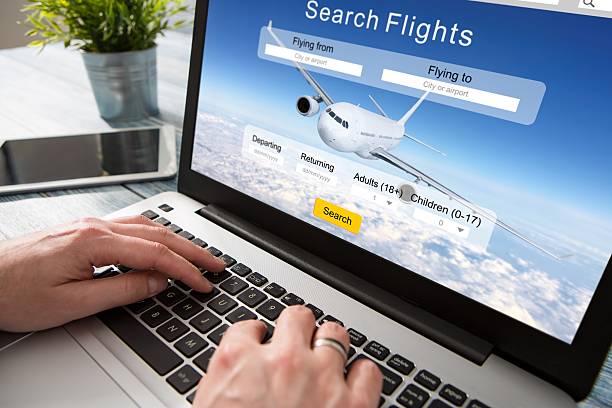The hope of living the American dream comes with the stress of clearing your U.S. visa interview. You might be fully qualified, but fumbling and saying avoidable things in a visa interview can cost you visa approval.
To ace the interview, you must know what to say and things not to say in your U.S. visa interview. As such, it is essential to approach your interview with maximum care and attention.
Let’s help you understand some critical things to avoid speaking to the officer during your visa interview!

1. I Haven’t Booked a Return Ticket
The primary purpose of a visitor visa interview is for the immigration officer to confirm whether or not you will return to your home country after visiting the U.S. An essential sign of this is if you’ve booked a return ticket.
You must convince the immigration officer you have an absolute plan to return to your home country. After all, you can’t work or study with a U.S. visitor visa, so by stating that you don’t have a return ticket, you cast suspicion on your true intentions, raising concerns about an overstay.
It is rather advisable to clearly express your planned itinerary, demonstrating your readiness to stick to the visa conditions. Although a return ticket doesn’t guarantee your visa approval, it is one piece of the puzzle showing your dedication to adhere to U.S. immigration laws.
If your travel plans are doubtful, ensure you explain why and how you intend to resolve these uncertainties before you return home.

2. I Do Not Have a Family or Job Back Home
The extent of your ties to your home country will significantly impact your likely return perception. Family ties, stable occupation, owning properties, and continuing professional or educational commitments are all convincing reasons to want to return home after your visit.
If you state that you do not have a family or job to return to, it will make you appear as a possible immigrant. Therefore, presenting a strong case demonstrating that you have adequate reasons to return home is essential.
Even if you’re unemployed at the time or your family isn’t in your home country, you can still demonstrate your ties. You might mention ongoing projects, commitments, community involvement, or plans for the future that will require your presence back home.

3. I Have Friends/Family Living Illegally in the U.S.
If you start discussing your connections to individuals living illegally in the U.S., it can seriously threaten your visa application approval. Furthermore, it can cause worries about your purpose, and the visa officer might suspect you could follow the exact route.
Therefore, honesty during your interview is always advisable, but oversharing or saying unrelated information can be unproductive. If asked about your connections in the U.S., focus on your legal relationships.
However, if you must mention someone living in the U.S. without a legal status, be prepared to provide reassurances about your intent to abide by the law and not follow the same path.

4. I Intend to Work During My Stay in the U.S.
The U.S. government does not allow visitor visa holders to seek employment in the U.S. At the mention of your intention to work, whether to support your travel budget or to gather experience, your visa application will be denied immediately.
You must be confident enough to assure the visa officer that your visit is purely for leisure and that you have adequate funds to cover your expenses throughout your stay. Communicating that your primary purpose for visiting the U.S. aligns with the visa’s conditions is crucial.
This could be to sight-see, vacation, visit friends or relatives, or receive medical treatment. If asked about your finances, be prepared to show proof of your financial resources and budget for the trip.

5. I Don’t Know
Being uncertain during your visa interview will only send off alarm bells. Whether it’s about your travel plans, accommodation, or financial means, not being fully prepared can be sensed as a lack of serious intent or potentially hiding other motives.
Before your interview:
- Invest time understanding the U.S. visitor visa process and preparing your responses to possible questions.
- When asked about your U.S. travel plans, provide precise, well-thought-out answers.
- Show that you understand your obligations as a U.S. visitor and intend to abide by the rules.
6. Hello Ma’am/Sir
Refrain from addressing the visa officers as sir/ma’am or even officers at your visa interview. The logic behind using these words is that the visa officers are simply doing their job and are not superior to applicants in any way possible.
This way, applicants can also have a better chance of being relaxed in an interview and genuine in front of a visa officer. Below is a detailed list of things you Cannot Bring to your U.S. Visa Interview.
- Refrain from bringing a backpack, baggage, mobile phone, electronic gadgets, liquids, food materials, sharp objects, weapons, or bottles. You won’t be allowed to carry any of the above-mentioned items inside the U.S. Consulate. Only take your visa-related documents and passport to the Consulate.
- Refrain from taking your friends or relatives to escort you to the U.S. Consulate. They won’t get permission to enter the Consulate. Only applicants and, in the case of minors, the parents of minor applicants are permitted inside the Consulate.
- After you reach the U.S. Consulate, ensure you clear the security check. Do not force sealed envelopes or folders through the counter window. Only deposit your passport and visa documents at the counter window. You will get a token number to enter the interview booth when your name and token number are announced.
- Never submit falsified/ fake documents to the Consular Officer, as this may cause you to become permanently ineligible for a U.S. visa.
- Do not push supporting documents before the Consular Officer; present them when the Consular Officer asks.
Wrapping Up
Navigating the U.S. visitor visa process can be a complex task, but the ideas of things not to say in your U.S. visitor visa interview can significantly enhance your chances of a successful application. Remember to give genuine, transparent, and confident answers.
Our guide will help you better understand the nuances and prepare you for potential questions that may come your way. Good luck with your visa interview!



